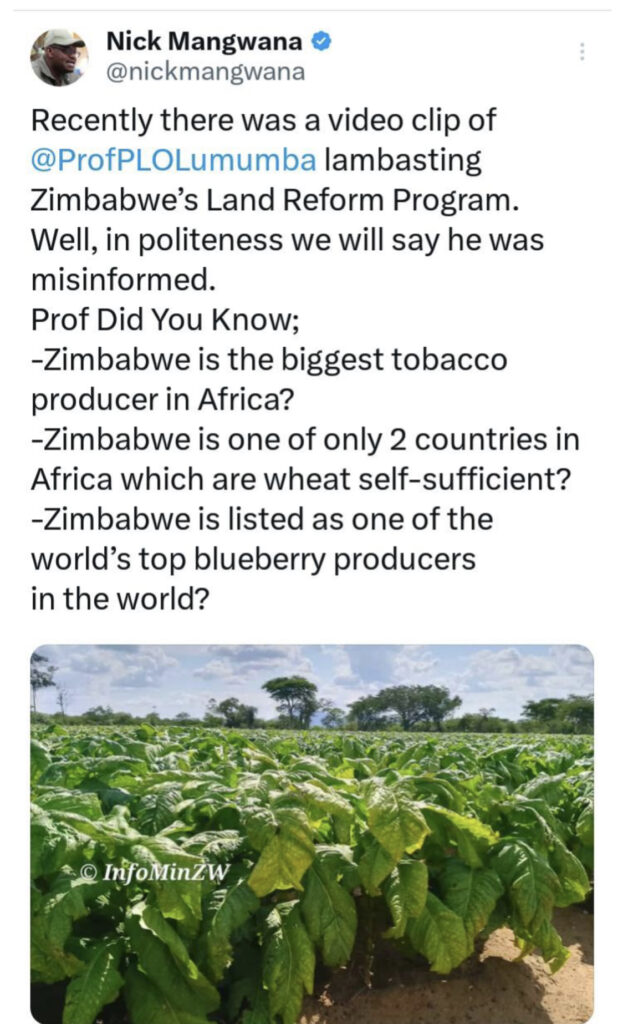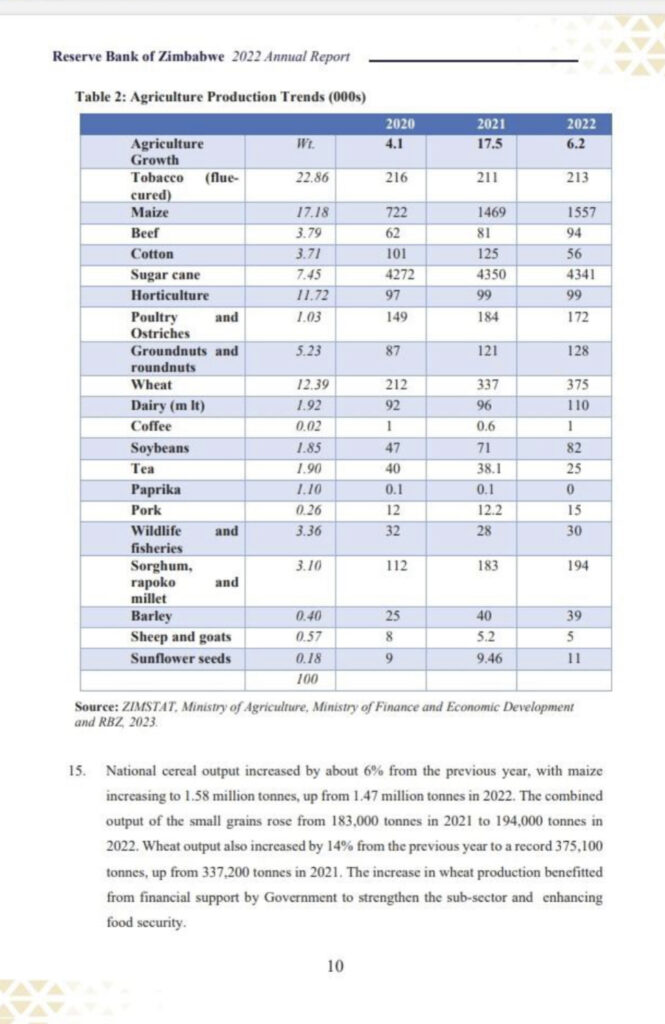CLAIM: Zimbabwe is one of the only two African countries which are wheat self-sufficient
SOURCE: Nick Mangwana on X, formerly Twitter
VERDICT: True
Permanent Secretary in the Ministry of Information, Publicity and Broadcasting Services, Nick Mangwana, on January 17, 2024, claimed that Zimbabwe remained one of the only two African countries that are wheat self-sufficient despite the criticisms of its fast-tracked land reform programme.
Mangwana was responding on X, formerly Twitter, to a recent video clip in which renowned lawyer and academic, Professor Patrick Loch Otieno Lumumba of Kenya, criticized Zimbabwe’s land reform of the year 2000 for lacking foresight. He claimed that the land dispossessed of former commercial farmers remains idle while the same farmers have gone to other countries such as Zambia to replicate what they were doing in Zimbabwe.
The video clip generated a lot of debate on social media, with some Zimbabweans accusing the professor of being “misinformed.” Contributing to the hot discussion, Mangwana said: “Recently there was a video clip of @ProfPLOLumumba lambasting Zimbabwe’s Land Reform Program. Well, in politeness we will say he was misinformed.
Prof Did You Know;
-Zimbabwe is the biggest tobacco producer in Africa?
-Zimbabwe is one of only 2 countries in Africa which are wheat self-sufficient?
-Zimbabwe is listed as one of the world’s top blueberry producers in the world?”

According to the Reserve Bank of Zimbabwe (RBZ) 2022 Annual Report, the country produced over 375,100 metric tonnes of wheat in 2022 against a national requirement of 360 000 metric tonnes, hence becoming self-sufficient. The RBZ statistics are attributed to the Ministry of Finance Agriculture and Zimbabwe National Statistics Agency (ZIMSTAT).

The 2022 wheat production volumes are also confirmed by The Zimbabwe Coalition on Debt and Development (ZIMCODD) May 2023 and October 2023 economic review reports with the former stating that Zimbabwe’s 2023 wheat production was projected to surpass the 375 000 tonnes realized in 2022, which is above annual wheat requirement of about 360 000 tonnes. The latter also indicates that the Ministry of Agriculture estimated production at about 415,000 metric tonnes (MT) of wheat in 2023 whose harvest would be 10% higher than in 2022 and a consecutive record harvest.
On the other hand during the 2021/22 cropping season wheat production from irrigated and rain-fed systems in Ethiopia, according to the African Development Bank reached 7 million metric tonnes resulting in that East African country not importing wheat in 2022.
All other African countries continue to supplement wheat local production with imports.
Conclusion
The claim that ‘Zimbabwe is one of the only two African countries which are wheat self-sufficient’ has been rated as true.
While Zimbabwe and Ethiopia are both wheat self-sufficient according to the 2022 statistics, they are also among Sub-Saharan Africa’s top producers together with South Africa, Sudan, Kenya, Tanzania, Nigeria, and Zambia. While government officials claim Zimbabwe will no longer import any wheat, the country still needs some imports.
The country’s “soft” wheat must be blended with imported varieties, which cannot be grown here due to the climate, to make shelf-quality bread.











